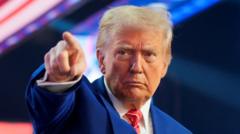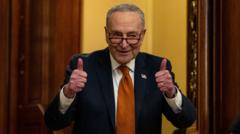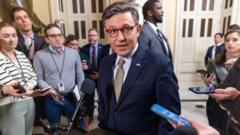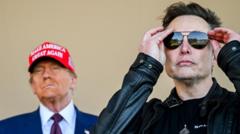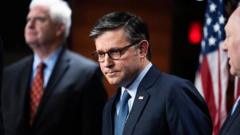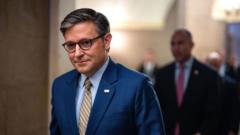As Donald Trump prepares for a potential second term, his recent appointees signal a hardline approach to immigration, a strong stance against China, and a focus on enhancing presidential power while balancing loyalty and governance.
Trump's Evolving Leadership Style: Insights from His New Appointees
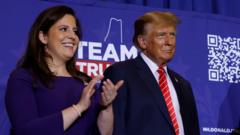
Trump's Evolving Leadership Style: Insights from His New Appointees
A closer look at the appointments made by President-elect Donald Trump reveals his priorities and political strategy for a second term, with a focus on immigration, foreign policy, and consolidating executive power.
Trump’s selection of new appointees marks the early days of his second presidential term, setting a pronounced tone for the upcoming administration. Notably, the appointment of Congresswoman Elise Stefanik as U.S. ambassador to the United Nations indicates an alignment with Trump's firm stance against adversaries such as China, a recurring theme in his administration's direction.
The president-elect's cabinet thus far reflects a more concrete plan than his previous term, prioritizing his longstanding immigration policies. Close advisement from key figures, such as Stephen Miller, who is set to take on a chief role in immigration, affirms Trump's commitment to robust enforcement strategies including mass deportations. This perspective can draw criticism for the potential financial burden it poses, as previously voiced by detractors citing costs exceeding $300 billion. Nonetheless, Trump remains resolute, emphasizing the imperative of national security over economic concerns.
In addition to immigration, Trump's foreign policy appointments reveal an avowed critical stance toward China. Florida Congressman Mike Waltz, a staunch pro-military advocate, has been selected as national security advisor, projecting a "cold war" mentality toward the nation. Similarly, Stefanik's regard for Chinese interferences in U.S. electoral processes emphasizes an ongoing theme of vigilance against foreign threats. Moreover, the railroading of potential cabinet candidate Marco Rubio adds to the roster of officials collaboratively steering U.S.-China policy.
Recently, tech magnate Elon Musk has emerged as a significant advisor, focusing on governmental efficiency and budget reductions, hinting at the incorporation of private sector strategies into public governance. Trump also appears intent on rewarding party loyalists with critical appointments, including South Dakota Governor Kristi Noem as homeland security secretary and well-known Fox News commentator Pete Hegseth as defense secretary. This inclination towards those with established backing could signify a departure from the mixed cabinet approach of his first term.
There is a growing indication that Trump is inclined to execute his agenda without relying heavily on Congress, favoring executive orders to drive change rather than legislative compromises. This methodology could expedite his policy initiatives, particularly in controversial sectors like immigration. However, concerns linger over the long-term impacts this could have on his cooperation with any congressional majority.
Ultimately, as Trump's staff evolves, the narrative around loyalty versus governance will be crucial in predicting the nature of his second term, where the balancing act of personal allegiance and effective leadership may reveal adjustments from his earlier strategies of office.
In conclusion, the selections made thus far suggest a consolidation of power driven by personal alliances and a strategic focus on enforcement, fostering an administration that prioritizes Trump’s core issues while aiming to mitigate challenges through assertive measures.

